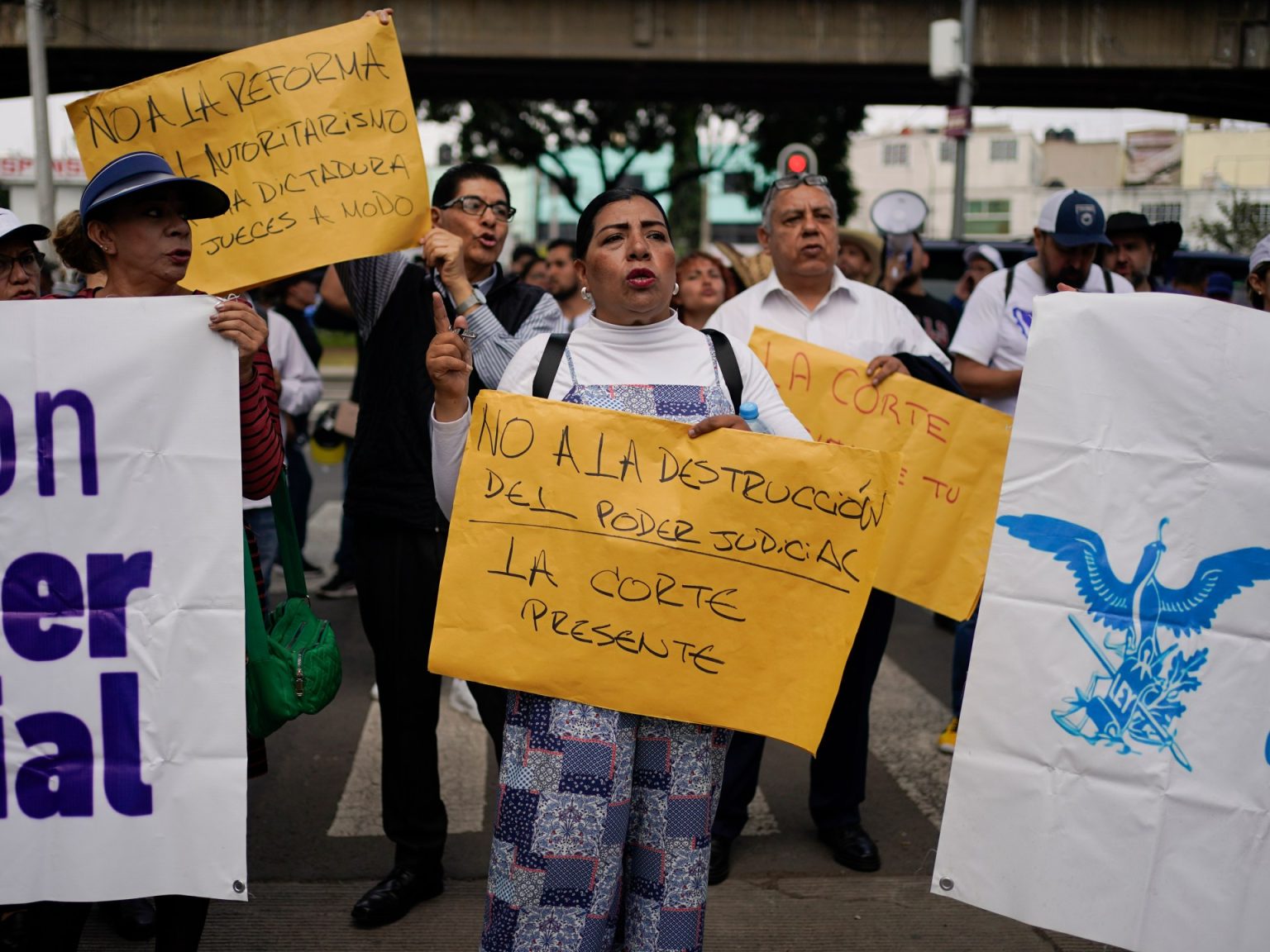On Wednesday, Mexico’s lower house passed a judicial overhaul proposed by President Andres Manuel Lopez Obrador, despite widespread protests and ongoing strikes by federal court employees. The reform package includes the controversial provision of having federal judges elected by popular vote, sparking concerns about the independence of the judiciary. Critics argue that the bill fails to address the actual issues affecting the system and could erode the rule of law in the country.
Opposition legislator Paulina Rubio Fernandez expressed concerns about the bill before the vote, stating that it marked the beginning of the fall of the republic. The vote passed 359-135 in an initial party-line vote, with final approval required from the Senate for further debate. Due to the inclusion of constitutional changes, supermajority votes are needed in both chambers. While the Morena party is one seat short of a supermajority in the Senate, the bill is expected to eventually pass, as Lopez Obrador seeks to push through the reforms before the end of his term.
Lopez Obrador has justified the reforms as necessary to combat corruption and democratize the judiciary, which he claims is influenced by organized crime. However, critics, including legal organizations and experts, argue that the approach is misguided and that other institutions, such as prosecutors and police, are responsible for the system’s shortcomings. The United States and Canada have also criticized the reforms, warning of potential damage to relations and the economy. The Mexican president has put relations with the US and Canadian embassies on hold in response to the criticism.
The proposed changes would allow any lawyer with minimal qualifications to run for a federal judgeship, altering the traditional career paths for judges and court secretaries. Approximately 7,000 judges, including those on the Supreme Court, would be determined by popular vote. The reform package also involves introducing “hooded judges” to oversee organized crime cases, keeping their identities secret to prevent reprisals. Moreover, the courts would be limited in their ability to block government projects or laws based on citizen appeals.
Critics of the reforms argue that the changes would likely benefit the president’s party, ensuring long-term political power even after Lopez Obrador leaves office. Before the vote, Supreme Court judges joined thousands of judicial workers on strike in protest against the reforms. The judges announced a suspension of activities but pledged to hear urgent cases. The outcome of the judicial overhaul remains uncertain, with critics warning of potential consequences for the rule of law and the independence of the judiciary in Mexico. AMLO’s push for the reforms reflects his commitment to addressing corruption and reforming the justice system, despite concerns about the impact on democracy and the rule of law.













